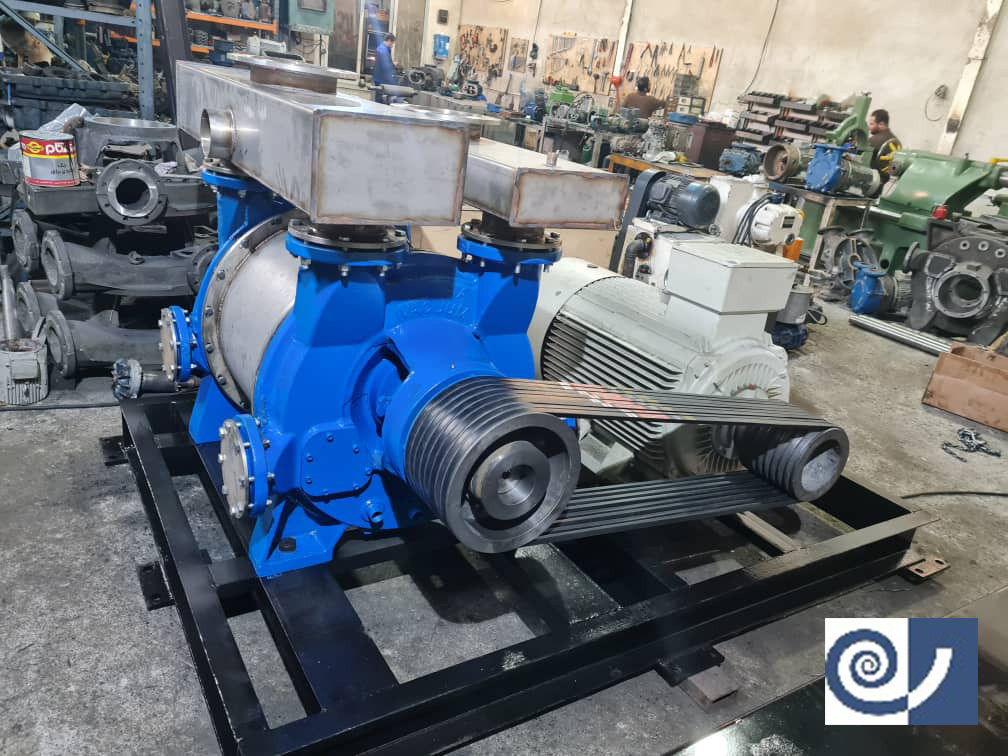Vacuum Ranges & Appropriate Pump Technologies

Vacuum pumps are selected based on the desired pressure range, which dictates the technology needed. Common ranges include rough/low vacuum (1000 to 1 mbar), medium/fine vacuum (1 to 10⁻³ mbar), high vacuum (10⁻³ to 10⁻⁷ mbar), and ultra-high vacuum (10⁻⁷ to 10⁻¹² mbar). Different pump types are suited for these ranges, such as mechanical pumps for rough and medium vacuum, turbomolecular pumps for high vacuum, and ionic or cryopumps for ultra-high vacuum.
Here’s a breakdown of vacuum ranges and corresponding pump technologies:
۱٫ Rough/Low Vacuum (1000 to 1 mbar / 760 to 0.75 Torr):
-
Typical Pumps:Mechanical pumps like rotary vane pumps, scroll pumps, and liquid ring pumps are commonly used.
-
Suitable Applications:These pumps are used in applications like freeze drying, packaging, and vacuum chucking.
-
Pump Characteristics:These pumps typically handle large volumes of gas and are relatively simple in design and maintenance.
۲٫ Medium/Fine Vacuum (1 to 10⁻³ mbar / 0.75 to 7.5×10⁻³ Torr):
- Typical Pumps: Rotary vane pumps, scroll pumps, and dry pumps are suitable choices.
- Suitable Applications: This range is often used in laboratories for experiments and some industrial processes.
- Pump Characteristics: These pumps offer higher vacuum levels than rough vacuum pumps, but may require more complex maintenance or specific oil types.
۳٫ High Vacuum (10⁻³ to 10⁻⁷ mbar / 7.5×10⁻³ to 7.5×10⁻⁷ Torr):
-
Typical Pumps:Turbomolecular pumps, diffusion pumps, and sometimes roots pumps are used in this range.
-
Suitable Applications:High vacuum is crucial for semiconductor manufacturing, surface science, and some analytical instruments.
-
Pump Characteristics:These pumps can reach lower pressures but may be more sensitive to contamination and require careful operation.
۴٫ Ultra-High Vacuum (10⁻⁷ to 10⁻¹² mbar / 7.5×10⁻⁷ to 7.5×10⁻¹² Torr):
- Typical Pumps: Turbomolecular pumps, ion pumps, and cryopumps are used in this range.
- Suitable Applications: UHV is necessary for advanced research, such as in particle accelerators and materials science.
- Pump Characteristics: These pumps can achieve very low pressures and are essential for experiments where even trace amounts of contaminants can affect results.
۵٫ Extreme High Vacuum (less than 10⁻¹² mbar / 7.5×10⁻¹² Torr):
- Typical Pumps: Cryopumps, getter pumps, and specialized ion pumps.
- Suitable Applications: Applications requiring ultra-clean, contamination-free environments, such as in some high-energy physics experiments.
- Pump Characteristics: These pumps are designed for the most demanding applications and often involve complex technologies and processes.
Choosing the right pump technology depends on several factors, including:
- Pressure Range: The specific pressure required for the application.
- Pumping Speed: How quickly the pump can remove gas from the system.
- Ultimate Pressure: The lowest pressure the pump can achieve.
- Gas Type: The type of gas being pumped can affect pump selection.
- Contamination Sensitivity: Some pumps are more susceptible to contamination than others.
- Maintenance Requirements: Consider the complexity and frequency of maintenance.
- Cost: The cost of the pump and its operation.
